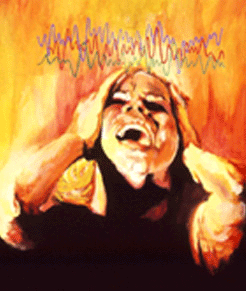Breakthrough in migraine therapy

Your support helps us to tell the story
From reproductive rights to climate change to Big Tech, The Independent is on the ground when the story is developing. Whether it's investigating the financials of Elon Musk's pro-Trump PAC or producing our latest documentary, 'The A Word', which shines a light on the American women fighting for reproductive rights, we know how important it is to parse out the facts from the messaging.
At such a critical moment in US history, we need reporters on the ground. Your donation allows us to keep sending journalists to speak to both sides of the story.
The Independent is trusted by Americans across the entire political spectrum. And unlike many other quality news outlets, we choose not to lock Americans out of our reporting and analysis with paywalls. We believe quality journalism should be available to everyone, paid for by those who can afford it.
Your support makes all the difference.New anti-migraine drugs that have fewer side effects than existing treatments could be on the market within three years, scientists said yesterday.
They have been developed thanks to improved understanding of the mechanism that makes the brain over-react to stimuli and will usher in a new era in management of the condition, experts say.
Migraine is a hereditary illness which affects an estimated six million Britons – or 15 per cent of all adults. It is caused by an "oversensitive" brain which reacts to triggers such as fatigue, hunger, stress or the weather with a throbbing, one-sided headache, often accompanied by nausea and visual disturbances. Three times more women than men are sufferers.
One of the new drugs – a rescue treatment known only by its code MK0974 – interrupts the sequence of chemical reactions in the brain that cause a migraine at a different point from existing drugs.
Studies have shown that the brain releases the chemical calcitonin gene-related peptide (CGRP) during a migraine. Existing drugs, called triptans, block the release of the chemical. The new drug, known as a CGRP antagonist, blocks uptake of the chemical by neighbouring nerve cells.
Final trial results to be presented later this month to the American Headache Society will show that MK0974 reduces pain and is better at preventing the return of the migraine over 24 hours than existing triptan drugs, of which the best known is sumatriptan.
Peter Goadsby, leader of the headache group at the Institute of Neurology, University College London, said yesterday: "[MK0974] is very well tolerated and does really well compared with current treatments. It is going to be an important advance. We are well on the way to having a totally novel way of treating migraine."
Join our commenting forum
Join thought-provoking conversations, follow other Independent readers and see their replies
Comments